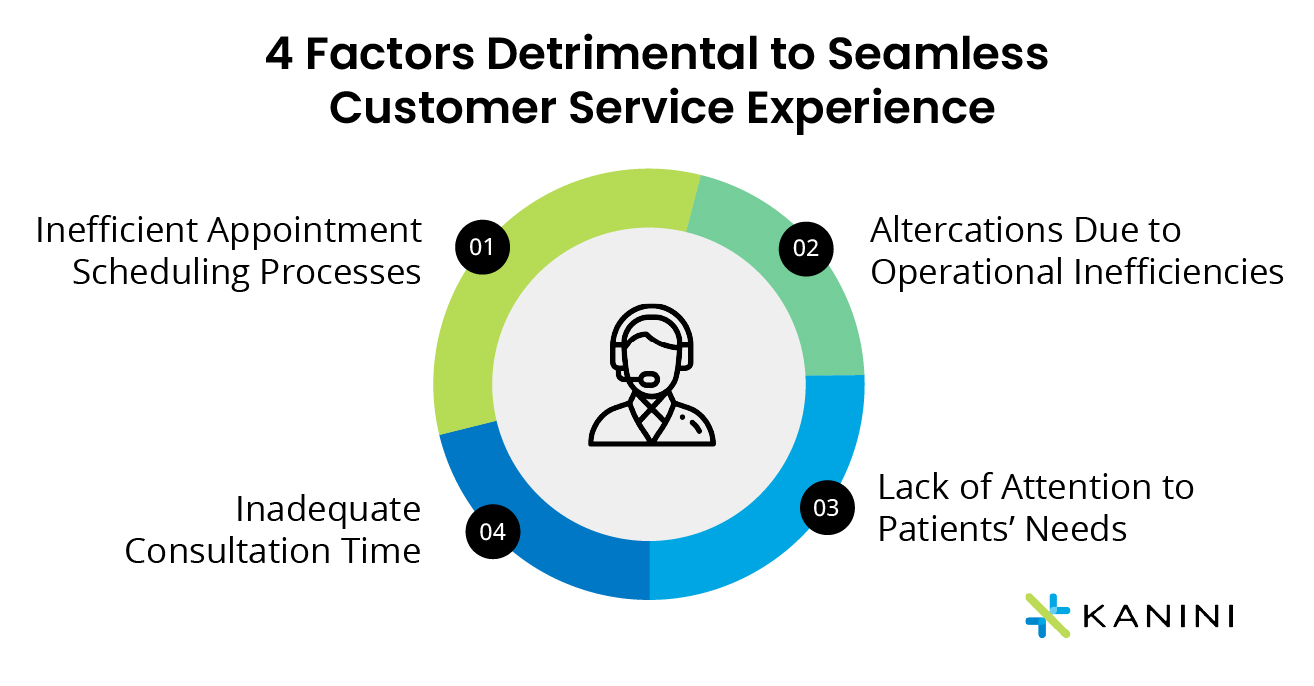Just like in any other business, customer experience is a crucial factor for the success of a Healthcare organization. Since the customers are patients in the healthcare industry, delivering timely and accurate services is much more important in healthcare to save lives or make them better. Great customer service delivery enhances customer/patient satisfaction and experience, thereby improving patient loyalty and contributing to business growth.
4 Factors Detrimental to Seamless Customer Service Experience
1. Inefficient Appointment Scheduling Processes
Very often in a healthcare practice, there are more patients and only a handful of doctors available to see the patients, which can make scheduling appointments a major challenge. Long waiting times for appointments can get very stressful for patients. Also, when there is no self-help portal, patients have to spend a lot of time trying to connect to the healthcare practice to modify or cancel their appointments. There are numerous such challenges revolving around scheduling medical appointments that impact the patient experience.
2. Altercations Due to Operational Inefficiencies

3. Lack of Attention to Patients’ Needs
4. Inadequate Consultation Time
Why is CSM Transformation Inevitable?
ServiceNow CSM for Customer Service Transformation
- Delivers a single view of patient data through the ServiceNow platform to ensure better and proactive care delivery
- Enables patients to schedule appointments efficiently with the platform and reduces unnecessary back-and-forth communications.
- Reduces operational costs by replacing disconnected healthcare systems with a single centralized platform.
- Increases patient engagement and satisfaction with self-service portals that can provide automated responses to common queries.
- Eliminates manual efforts involved in repetitive tasks such as validating personal information and so on.
- Assigns complicated patient queries automatically to relevant healthcare professionals and reduces resolution time.
- Enables patients to access their healthcare information and understand their health status better.
Key Takeaway
Author

Joshua Smith
Joshua is a process improvement thought leader and digital transformation expert at KANINI. Over the past 15 years, his focus has always been on achieving organizational maturity and enhancing business processes through implementing tools and workflows to drive transformation initiatives. With experience in multiple verticals from – manufacturing to healthcare, Joshua brings a practitioner’s perspective when working on business solutions and goals to allow him to advise and guide on industry and process best practices.








